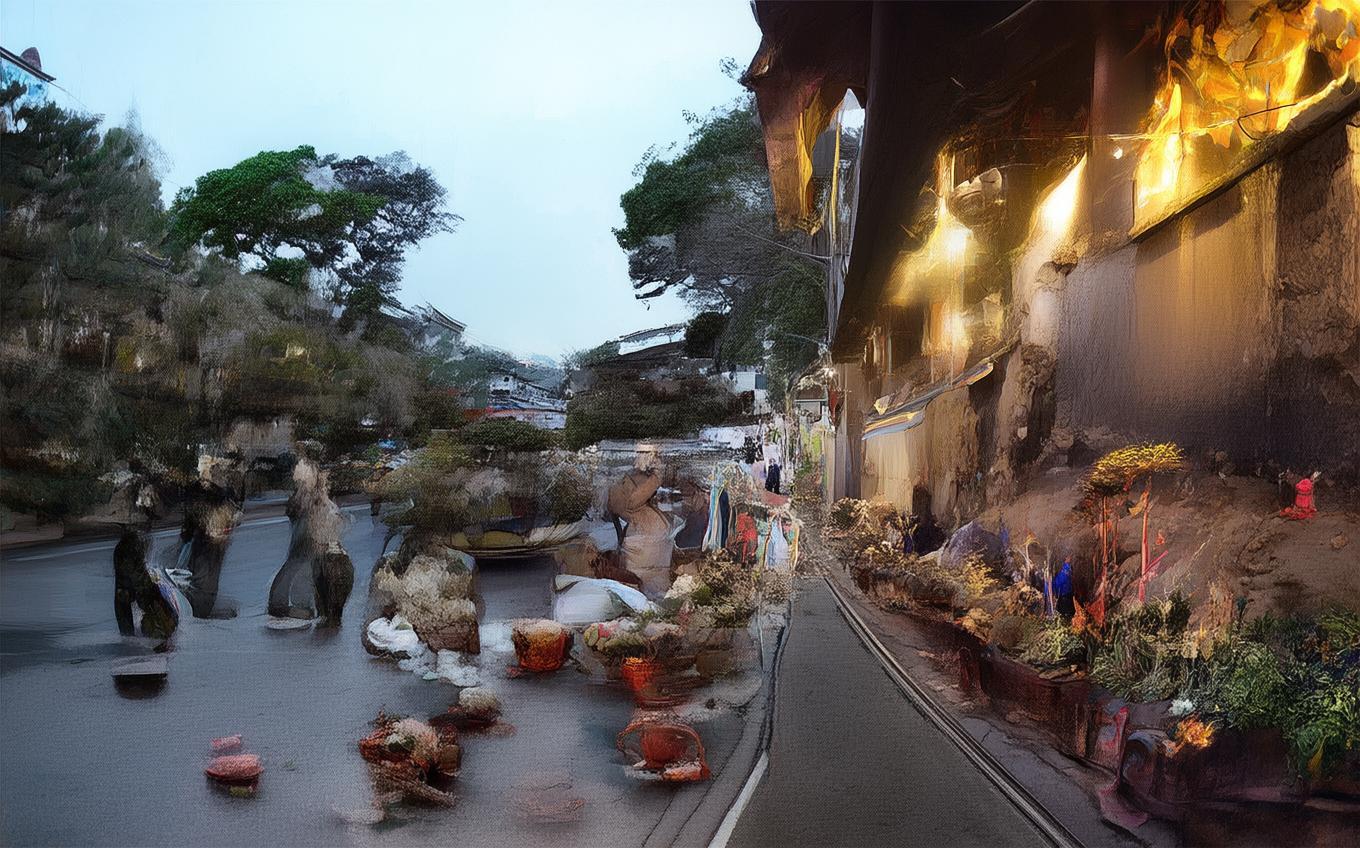Analysis of "沉醉东风·闲居" - Classical Chinese Poetry
Introduction
The poem "沉醉东风·闲居" (Chén Zuì Dōng Fēng · Xián Jū) was written by the renowned Yuan dynasty poet and playwright Lu Zhai (卢挚), who lived from 1242 to 1314. This work belongs to the sanqu (散曲) genre, a type of lyrical poetry that flourished during the Yuan dynasty. The poem captures the essence of reclusive living and the joy of simple pleasures, reflecting the Daoist ideal of harmony with nature that was particularly valued by scholars during this period of foreign Mongol rule.
The Poem: Full Text and Translation
雨过分畦种瓜
Yǔ guò fēn qí zhòng guā
After rain, I plant melons in divided plots
旱时引水浇麻
Hàn shí yǐn shuǐ jiāo má
In drought, I channel water to irrigate hemp
共几个田舍翁
Gòng jǐ gè tián shè wēng
With several old farmers
说几句庄家话
Shuō jǐ jù zhuāng jiā huà
We exchange simple peasant talk
瓦盆边浊酒生涯
Wǎ pén biān zhuó jiǔ shēng yá
By earthen bowls, a life of unrefined wine
醉里乾坤大
Zuì lǐ qián kūn dà
Drunk, the universe feels vast
任他高柳清风睡煞
Rèn tā gāo liǔ qīng fēng shuì shā
Let me sleep beneath tall willows and gentle breeze
Line-by-Line Analysis
-
Agricultural Beginnings: The opening lines depict the poet's simple farming activities - planting melons after rain and irrigating hemp during drought. These concrete images establish the poem's pastoral setting.
-
Rustic Companionship: The mention of "old farmers" and "peasant talk" shows the poet's appreciation for unpretentious company, contrasting with the sophisticated circles of official life.
-
Earthen Simplicity: The "earthen bowls" and "unrefined wine" symbolize a deliberate rejection of refinement, embracing instead the authenticity of rural life.
-
Philosophical Drunkenness: The line about drunkenness expanding one's sense of the universe reflects a classic Chinese poetic trope where intoxication leads to spiritual awakening.
-
Natural Repose: The final image of sleeping beneath willows in the breeze perfectly captures the poem's central mood of carefree relaxation in nature's embrace.
Themes and Symbolism
The Joy of Reclusion: The poem celebrates the xiánjū (闲居) or "leisurely dwelling" lifestyle that many Chinese literati idealized - a voluntary withdrawal from public service to enjoy private simplicity.
Nature as Refuge: Agricultural imagery (melons, hemp) represents self-sufficiency, while natural elements (rain, willows, breeze) symbolize the peace found in harmonious living with nature's rhythms.
The Drunken Sage: The motif of drinking embodies the Daoist concept of achieving clarity through apparent intoxication - a state where worldly concerns dissolve into cosmic awareness.
Cultural Context
Written during the Yuan dynasty (1271-1368), this poem reflects how many Han Chinese scholars, marginalized under Mongol rule, turned to nature and reclusive lifestyles. The sanqu form itself was more vernacular than classical shi poetry, allowing for greater expression of personal emotion.
The work exemplifies several key Chinese cultural values:
- The scholar's ideal of "poor but happy" (安贫乐道)
- Daoist appreciation of natural simplicity
- Rejection of worldly success in favor of spiritual freedom
Conclusion
"沉醉东风·闲居" beautifully encapsulates the Chinese literati's dream of rustic retreat - not as poverty, but as liberation. Its vivid agricultural imagery and celebration of simple pleasures continue to resonate with modern readers seeking respite from urban complexity. The poem reminds us that true contentment might be found not in achievement or possessions, but in the rhythm of seasons, the taste of homemade wine, and the shade of willow trees. In our fast-paced world, Lu Zhai's eight centuries-old vision of drunken repose under swaying branches remains surprisingly fresh and inviting.




Comments (0)
No comments yet. Be the first to comment!